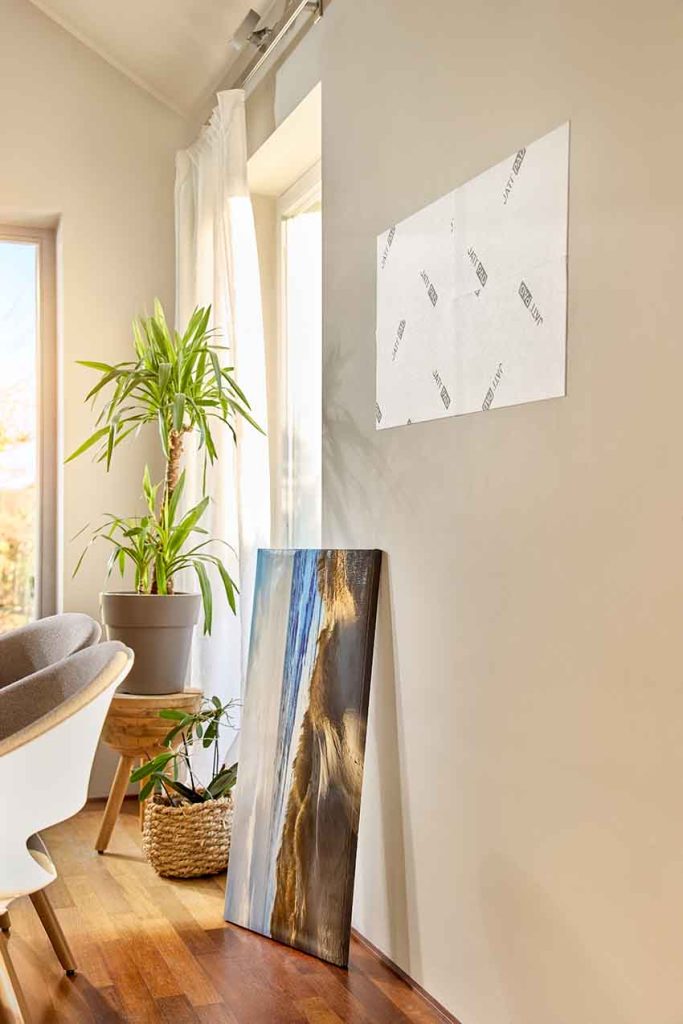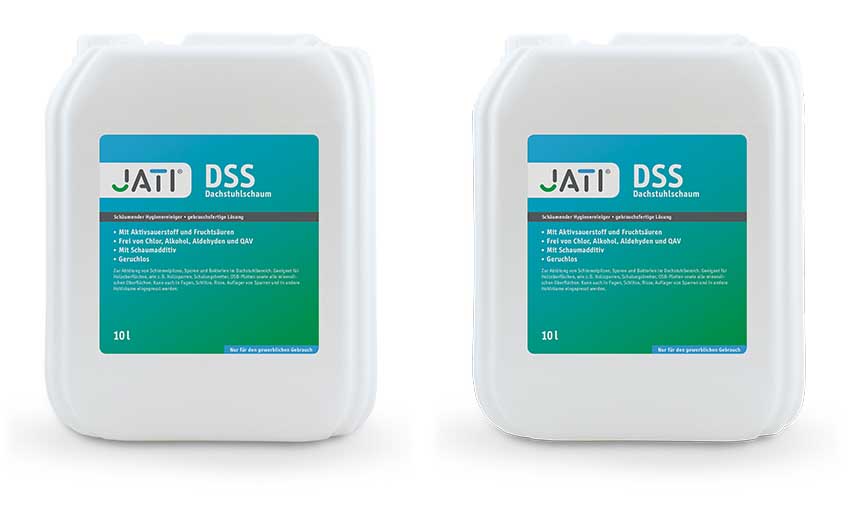Launched as a mail order company, JATI developed its first mould remediation products in 2004 based on hydrogen peroxide and fruit acids, and therefore made the right choice early on before uniting with Guido Beckmann’s expertise in 2019.
Interview with Guido Beckmann, CEO of JATI.
Easy Engineering: A brief description of the company and its activities.
Guido Beckmann: The story of JATI began in 1984. And in 1985. What may sound a little indecisive to some is the development of two independent companies that decades later consistently bundled all their experience into one brand. In both cases, family played a significant role. Thus, inspired by my father’s trading company for chemical products, I built up my expertise in cleaning and disinfection as early as 2002. JATI, on the other hand, was jointly founded by the Jakobi and Tielke families. Started as a mail-order business, JATI developed its first products based on hydrogen peroxide and fruit acids to combat mould in 2004. In 2019, this expertise came together with mine. Since then, I have been the managing partner of JATI GmbH.
E.E: What are the main areas of activity of the company?
G.B: Since 2004, JATI has been developing, producing and distributing chemical products for the elimination of mould in indoor spaces. Private households, painting contractors and remediation companies as well as public institutions such as kindergartens, municipal gymnasiums or the German armed forces are served. Since 2020, the JATI portfolio has been expanded to include products for fire restoration. We represent a reliable supplier as well as a professionally valued training and contact partner for customers. High-quality products and competent employees make us a sought-after supplier for customers from all over the world, who particularly benefit from the company’s many years of experience.

E.E: What’s the news about new products?
G.B: We constantly observe the renovation industry and its developments in order to be able to react directly to them with innovations. This resulted, for example, in the “fire restoration” division developed 3 years ago. We offer cleaners for a wide variety of surfaces, materials and applications, such as odour binding, odour elimination, the removal of soot, smoke resin or tar deposits. Special mention should be made of SAR 10, a ready-to-use solution with a very high cleaning performance. The new JATI PAD is also part of such a monitoring process. After all, the number of mould cases in rented flats is constantly increasing. What happens first when you discover mould indoors? After the initial shock, one’s thoughts often turn directly to remediation of the damage, but this must be planned. In most cases, the damage cannot be repaired by remediation companies as quickly as one would wish. And so, as a result, there is usually a lot of stress and costs involved in clearing out the contaminated space. Our newly developed JATI PAD will solve this problem in the future. The 25 x 50 cm fleece mat intelligently bridges the period until remediation measures are taken. It has a diffusion-open coating that encapsulates mycelium and mould spores. This prevents them from being released into the room. Moisture, on the other hand, can evaporate through the open-pored fleece so that no new mould develops. The room remains usable. When renovation is due, the JATI PAD can be removed again without any problems. Mycelium and mould spores or other loose particles remain safely in the coating of the fleece mat and are not released.
E.E: What are the ranges of products?
G.B: Our product range includes the following fields:
- products for mould control (biocides, screed insulation disinfection) and supplementary products (fixing, fogging additive, odour concealer).
- products for fire damage restoration
- application technology (foam devices, rinsing sets, foam application hose, cold and hot fogging devices, etc.). …)
- special products, special chemical products (solder release agent, cleaning solution for wet wipes, …)
- dental hygiene

E.E: At what stage is the market where you are currently active?
G.B: We assume that the renovation market will expand on the one hand due to increasing bad weather events. On the other hand, due to dwindling building materials and increasing demands in terms of sustainability, it will develop in such a way that in the future more raw materials will be preserved and much will be repaired.
E.E: What can you tell us about market trends?
G.B: On the one hand, the market is changing in the areas of “digitalisation” and “sustainable renovation”. The conservation of resources is becoming increasingly important. This means, for example, that people are increasingly trying to preserve screed insulation floors instead of dismantling them. This can be implemented with sustainable disinfectants based on hydrogen peroxide, as these split into the parts “oxygen” and “water”. This process conserves resources, uses less energy as well as raw materials and saves costs. In addition, less and less environmentally harmful remediation agents are used. This is true for both fire and water damage restoration. On the other hand, the topic of “further training of employees” is increasingly coming into focus. Training courses are currently in great demand. In addition, insurance companies are currently tending to rely more on regional partners in restoration. This means fewer contact persons with faster reaction times in case of complaints and short communication channels.
E.E: What are the most innovative products marketed?
G.B: The most innovative product at the moment is certainly the JATI PAD. In short, it quickly creates safety and time. It is not a biocide and contains no chemicals that pollute the environment. The JATI EDS process is also the first of its kind and was developed specifically for the non-destructive remediation of screed insulation systems. The process is based on three highly efficient solutions for cleaning (JATI ED RS), disinfection (JATI EDD H+) and fixing (JATI ED FIX), which are perfectly coordinated. Compared to the classical reconstruction after many water damages, the JATI EDS method can reduce costs by up to 75%. Since no screed has to be removed or relaid, the JATI EDS method is also significantly faster to implement and thus enables equally fast re-use. This is a decisive advantage, for example, in commercially used rooms, in canteens of dormitories or other sensitive areas where downtimes are hardly tolerable.

E.E: What estimations do you have for 2023?
G.B: All relevant positions at JATI are now filled with strong personalities. We have expanded our business and portfolio in the DACH region in recent years. Great products, a super team and the transfer of knowledge to the customer have made us strong. JATI as a brand stands for innovation and technical know-how in the industry. Our ship is gliding into the world with full sails and a strong breeze. The crew is in good spirits. We know our tasks to keep the ship sailing into safe waters in the future. All in all – everyone is grabbing hold – we expect strong growth in 2023 and 2024.

